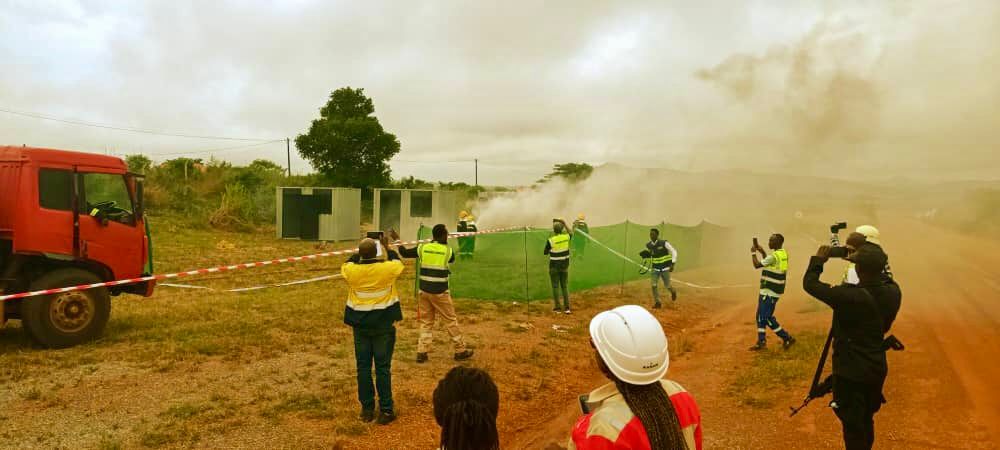Uganda’s Balanced Approach To Energy Security An Inspiration For Unification
Energy access and energy security is arguably the most important driver of economic growth for industry and investment attraction. Whilst the West has mobilised and industrialised on the back of emerging market resources, Africa itself is yet to capitalise.

The Ugandan government has been especially poised and thoughtful about how they balance fossil fuels and environmental health, while hugely contributing to regional and global energy security, Africa Oil Week’s VP of Energy and Director of Government Relations, Paul Sinclair, has said.
Sinclair adds that Uganda’s energy mix is dominated by renewables with hydro-power accounting for more than 80% and solar and wind energy gaining an increasing role in this mix.
“Uganda is the perfect case of a well-run government that have proven they can move in parallel – and want to move in parallel – with all stakeholders surrounding energy development to protect economies, industries, create jobs and respect the challenge of climate change,” Sinclair said.
His comments come ahead of the upcoming Africa Oil Week which will take place on the 3-7 October in Cape Town under the theme: Sustainable Growth in a Low Carbon World. The Minister of Energy and Mineral Development in Uganda, Ruth Nankabirwa, is scheduled to attend and make presentations.
Nankabirwa has been credited for this trend because she has helped shape one of the most advanced government policies which takes into consideration the key issue of environmental protection whilst developing crucial natural resources. Nankabirwa is to yet again attend this year’s Africa Oil Week.
“Her support in the drive for a balanced dialogue in energy security and environmental protection in harmony is highly valued at Africa Oil Week. The Ugandan government is using gold standard carbon management strategies to protect the environment whilst also using energy development resources to help create a brighter future and lasting value to its society.
Energy access and energy security is arguably the most important driver of economic growth for industry and investment attraction. Whilst the West has mobilised and industrialised on the back of emerging market resources, Africa itself is yet to capitalise.
The Regional Economic Community of East Africa has an energy deficit which is a clear obstacle to economic growth, yet it has the natural resources and gold standard carbon management policy to allow for both upstream development and environmental protection.
This alone means Uganda can positively influence the lives of its people and the East African community will positively impact lives with wealth creation and job creation as the region drives towards energy security and middle-income economies. So, the question remains, if global demand remains as we transition, why can’t countries with strong carbon management strategies benefit?
This is not a case of one shoe fits all. Industrialised economies have long benefited from Africa’s natural resources. They benefit from high levels of energy access and rank high on the global HDI because of Africa’s resources. So, if Africa respects carbon management and ensures the risk to the environment is equitable to sovereign receipts, why shouldn’t Africa be the responsible supply base of choice to global demand as we transition?
A Call for Unification
There is a critical need for aligned voices in the energy debate – there is no more room for polarisation. We can and must unite to defend energy security with a united and balanced approach in order to usher in a safe transition.
Uganda has proven it can protect and grow its economy, create jobs and contribute to social development and the eradication of poverty whilst acknowledging and understanding the importance of environmental protection.
In a recent article, Dr. Joseph Kobusheshe, Director Environment, Health, Safety and Security Management at the Petroleum Authority of Uganda, spelled out the need for a rational balance between facts and emotion.
He stated: The term ‘energy transition’ has been widely used to refer to the shift from use of fossil fuels that include oil, gas, and coal – which are the primary sources of Green House Gas (GHG) emissions – to renewable energy sources like solar, wind, hydropower and geothermal.
In light of that fact, it must be accepted that the transition will take time. Precisely because this is not a quick transition, an energy mix with oil and gas included is mandatory. By this logic, the development of oil and gas is simply not up for debate. Instead, we should align to find solutions to decarbonize whilst oil and gas are used throughout the transition.
Oil and gas are here to stay for the near term at least; therefore, it is the opinion of Africa Oil Week that Africa must remain at the table of supply and demand. The world should focus on how we mitigate GHG as a result of the use of oil and gas as we transition.







